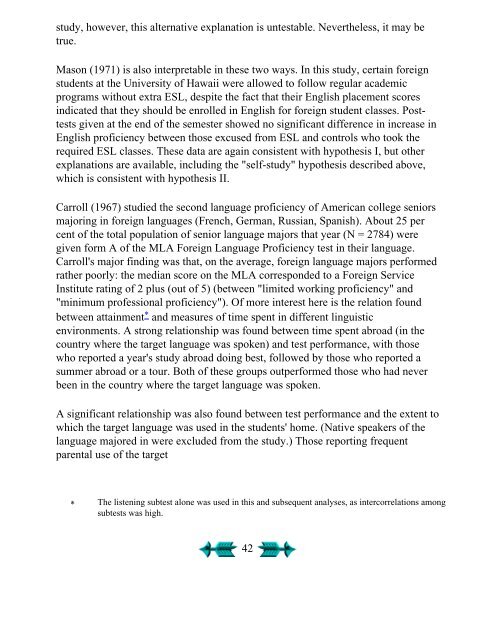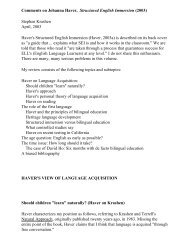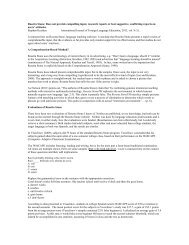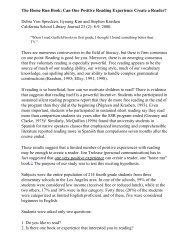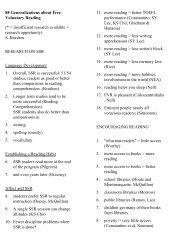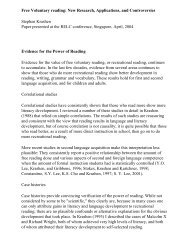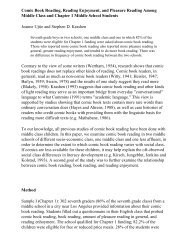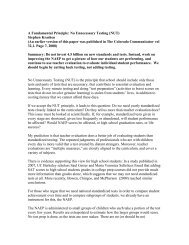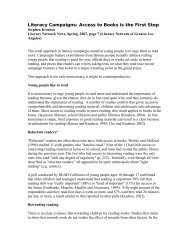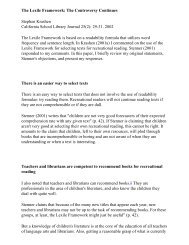Second Language Acquisition and Second ... - Stephen Krashen
Second Language Acquisition and Second ... - Stephen Krashen
Second Language Acquisition and Second ... - Stephen Krashen
Create successful ePaper yourself
Turn your PDF publications into a flip-book with our unique Google optimized e-Paper software.
study, however, this alternative explanation is untestable. Nevertheless, it may be<br />
true.<br />
Mason (1971) is also interpretable in these two ways. In this study, certain foreign<br />
students at the University of Hawaii were allowed to follow regular academic<br />
programs without extra ESL, despite the fact that their English placement scores<br />
indicated that they should be enrolled in English for foreign student classes. Posttests<br />
given at the end of the semester showed no significant difference in increase in<br />
English proficiency between those excused from ESL <strong>and</strong> controls who took the<br />
required ESL classes. These data are again consistent with hypothesis I, but other<br />
explanations are available, including the "self-study" hypothesis described above,<br />
which is consistent with hypothesis II.<br />
Carroll (1967) studied the second language proficiency of American college seniors<br />
majoring in foreign languages (French, German, Russian, Spanish). About 25 per<br />
cent of the total population of senior language majors that year (N = 2784) were<br />
given form A of the MLA Foreign <strong>Language</strong> Proficiency test in their language.<br />
Carroll's major finding was that, on the average, foreign language majors performed<br />
rather poorly: the median score on the MLA corresponded to a Foreign Service<br />
Institute rating of 2 plus (out of 5) (between "limited working proficiency" <strong>and</strong><br />
"minimum professional proficiency"). Of more interest here is the relation found<br />
between attainment * <strong>and</strong> measures of time spent in different linguistic<br />
environments. A strong relationship was found between time spent abroad (in the<br />
country where the target language was spoken) <strong>and</strong> test performance, with those<br />
who reported a year's study abroad doing best, followed by those who reported a<br />
summer abroad or a tour. Both of these groups outperformed those who had never<br />
been in the country where the target language was spoken.<br />
A significant relationship was also found between test performance <strong>and</strong> the extent to<br />
which the target language was used in the students' home. (Native speakers of the<br />
language majored in were excluded from the study.) Those reporting frequent<br />
parental use of the target<br />
*<br />
The listening subtest alone was used in this <strong>and</strong> subsequent analyses, as intercorrelations among<br />
subtests was high.<br />
42


